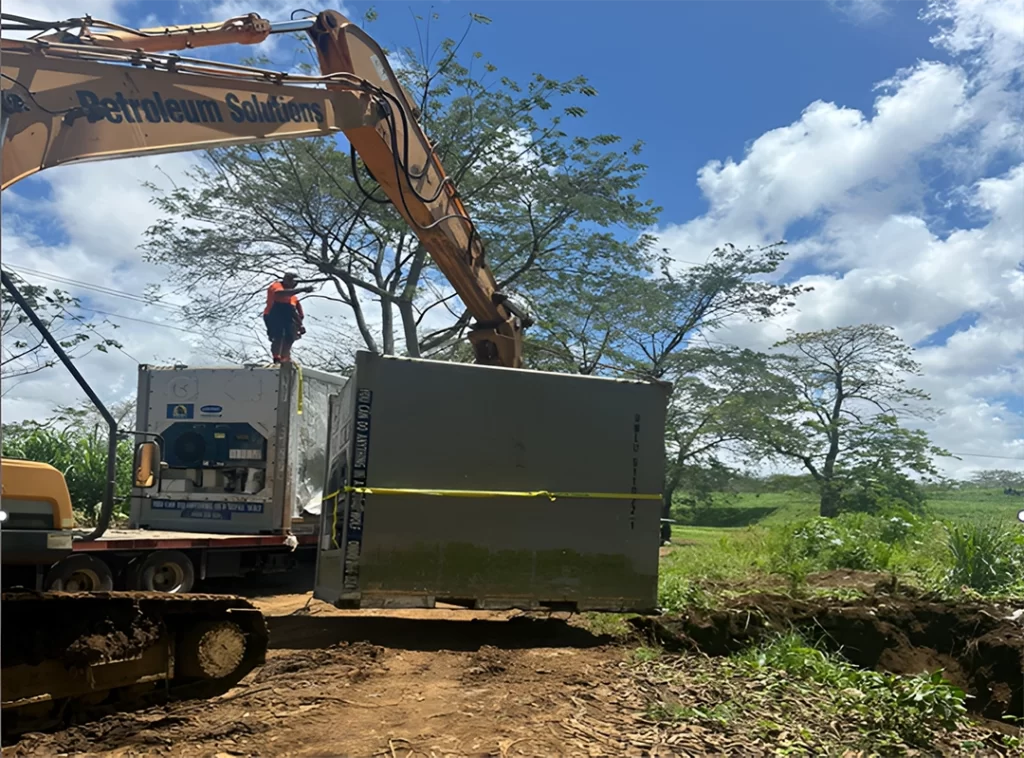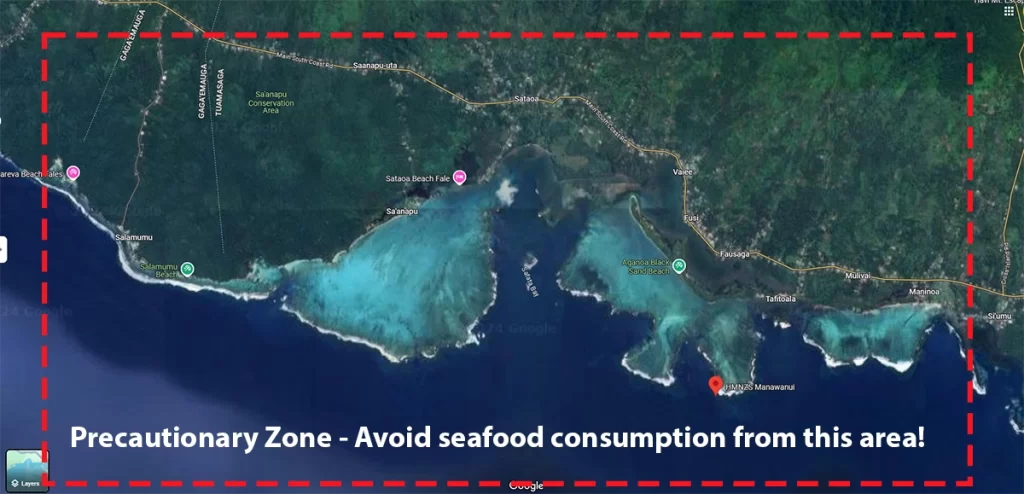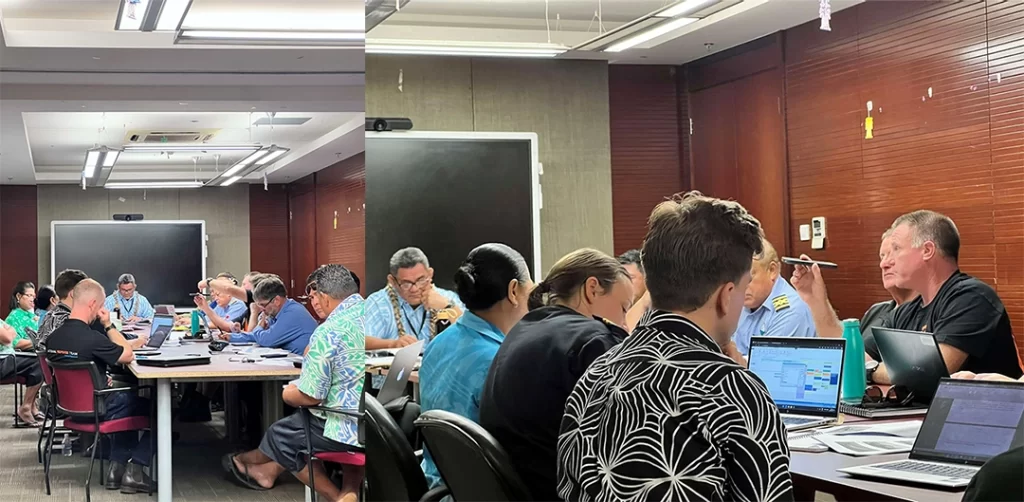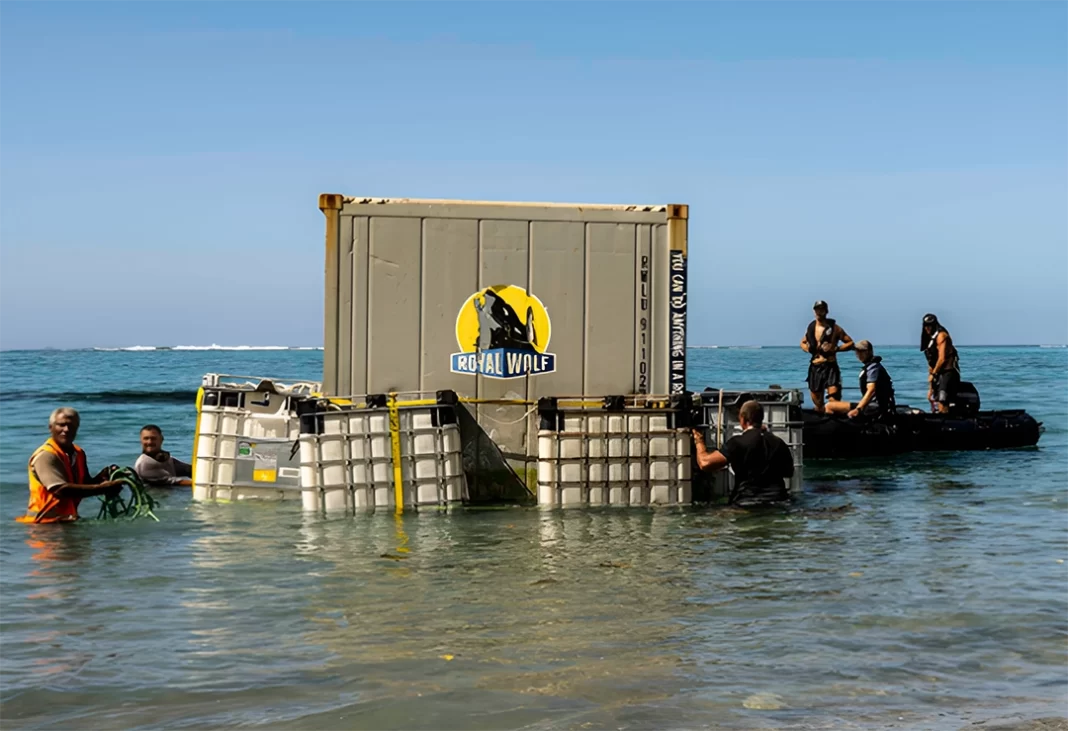The Marine Pollution Advisory Committee (MPAC) has released an update on the ongoing salvage efforts surrounding HMNZS Manawanui, as preparations intensify to safely extract diesel fuel and other contaminants from the grounded vessel.
The New Zealand Defence Force, along with a contracted salvage company, is actively coordinating resources on-site to remove pollutants and prevent further environmental impact. The salvaging team presented a detailed extraction plan to MPAC, pending final approval from MPAC Chair Afioga Fui Tupai Mau Simanu. Essential equipment, including a barge for fuel extraction, will be mobilized from Whangarei next week, with arrival at Apia expected around November 23-24.
Three shipping containers, displaced during the initial grounding, have already been successfully removed from the reef and returned to New Zealand via the Canterbury vessel. MPAC’s onsite monitoring has reported that the containers caused visible damage to the reef.

MPAC, with support from the Ministry of Works, Transport and Infrastructure (MWTI), Ministry of Natural Resources and Environment (MNRE), and the Secretariat of the Pacific Regional Environment Programme (SPREP), continues to oversee salvage operations and ensure environmental safety. The Scientific Research Organization of Samoa (SROS) has also introduced a monitoring plan to track any potential contamination in seawater and marine life near the wreck.
Local residents are urged to report any diesel slicks, debris, or affected marine life. Reports can be directed to Tualamaalii Wendy Pogi at +685 7708264 or via email at [email protected]. Photos and location details can be submitted through MWTI or MNRE’s Facebook pages.

Given the potential long-term environmental and economic impacts on nearby villages (nuʻu) and communities (alalafaga), it may be beneficial for residents to also report observations to an independent body. Such a body could provide an impartial assessment, ensuring that the true scope of the incident’s effects on local livelihoods and the environment is thoroughly evaluated.

MPAC will continue its close oversight to safeguard the surrounding marine environment as salvage work progresses.






